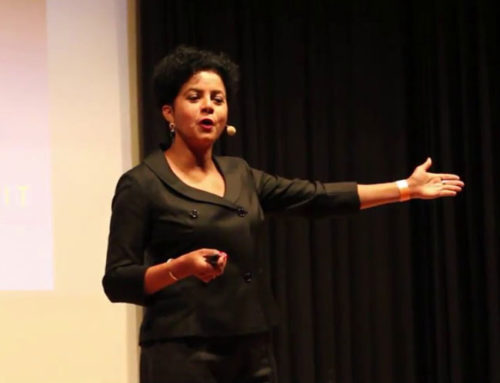By Maria Wilhelmsson, Vox Impact
Many of those who come to me for voice coaching want to learn to speak louder.
Tired of having to repeat themselves or seeing people lean forward and frown every time they speak, they want to know how they can make themselves heard.
It may sound like a trivial thing to do, just to turn up the volume knob a bit. In reality, it can be quite challenging to change your default speaking volume, and to keep it at the new, louder level. Your speaking habits have been formed since the early years of your life, and are coloured by your experiences, belief systems, culture, psychology and how you inhabit your body.
If you are struggling to pump up the volume, ask yourself if any of the following may be true for you:
In your books, loud is bad
Human beings are quick to adapt to the norm in families and society at large, and to judge those who do not conform to the social rules. Did you grow up in a family or a culture of soft speakers, where being loud equaled bad manners, lack of respect, or showing off? Were you frequently asked to be quiet and let others speak? Or were you the one to take on the quiet role in an otherwise loud family to balance it out?
A shy personality is another factor that gets in the way of loudness. If you are not comfortable being the center of attention, your voice will try to protect you from that attention by going soft. So hand on heart, do you really want to be heard?
Your ears are fooling you
When you think you are being really loud, are people still asking you to speak up? Your voice sounds louder inside your head than it does to other people. The reason is that the sound that you hear is amplified through the bone-conduction in your head, while other people only can hear the sound that is carried through the air in the space around you.
Now, if you want to communicate with other people, you will be better off trusting their ears rather than your own. To get an idea of the size of this perception gap, ask a friend – or several – for help. Speak a few sentences and ask your friend to indicate the loudness on a scale from 1-10. Compare it with the loudness level you were aiming for. If your friend gives you a 4 when you think you were at a 7, you can start to re-calibrate your ears and vocal effort accordingly.
Also remember that a larger room and a larger audience will require more volume than a face-t0-face conversation. Ask for feedback and keep adjusting your loudness to different settings.
Your mind is not clear
“That which is dimly said, was dimly thought.” (E. Tegnér)
You know how easy it is to speak up when you are certain of the facts and clear about your intention. The words flow and your strong conviction brings your voice to life. You know what you want to achieve and you want the world to hear your opinion. And then there are all the other times. The times when you wing it, when you didn’t have the time to prepare, or when you are simply not that engaged. Your voice will sense it and tactfully lower the volume, pull the sound back into your throat and relax the enunciation to minimize the potential public embarrassment.
Do you know what you are saying, why you are saying it, and do you stand for it?
You are a talking head
Does your voice get strained and tired when you have been speaking loudly for a while?
You may be doing all the speaking effort from your throat. Instead, think of your voice as a violin, with the strings being your vocal folds, the wooden body being your torso and your head, and the bow representing your breath.
All the parts are needed in order to bring out a powerful voice. Without the bow (breath) applied with the right pressure, the strings (vocal folds) will not vibrate in the way required to produce a rich sound. Without the body providing a strong frame and a resonance chamber, there will be no amplification of the sound.
You will find tips on how to engage your body and breath in my articles 4 ways to bring out the good vibes in your voice read and Breathe life into your presence.
And if your resolutions for 2017 involve getting your voice to work for you, only reading won’t do the job.
Join one of Maria’s acclaimed public workshops. The next one is in Lausanne on 7 March: ‘Showing up and Speaking with Confidence’.






